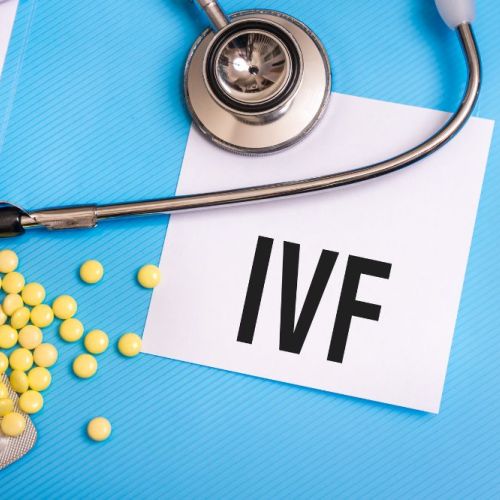Cancer and Fertility in Both Men and Women

More than 135,000 people younger than 45 are diagnosed with cancer every year. These men and women may still want to add to their families, but worry how their diagnosis and treatment will affect their fertility.
These numbers don’t include the hundreds of thousands who’ve recovered from childhood cancer and who also desire to go on to have a healthy, biological baby.
The doctors at California Center for Reproductive Health are in a unique position to discuss fertility preservation and your reproductive options, whether you’re a current cancer patient or a survivor.
Dr. Eliran Mor and Dr. Irene Woo understand the effects specific cancer treatments have on male and female fertility and can help with fertility preservation methods or hormonal and reproductive management after cancer treatment.
Cancer and male fertility
A man’s ability to father a child through normal sexual activity can be affected by cancer and cancer treatments. Reproductive problems may occur when hormone levels are altered due to cancerous cells or treatment, or when reproductive organs were removed due to cancer invasion.
Intensive radiation or chemotherapy can kill stem cells intrinsic to sperm production. Many men regain their ability to produce sperm after remission from cancer, but some do not. Hormone therapies that are used to treat prostate or other cancers can also have a negative impact on the hormones that help develop sperm.
Male fertility preservation methods
If you’re a man facing a cancer diagnosis, we can review your options for preserving your sperm for the future. Males who’ve passed puberty can provide a semen sample that’s then frozen in liquid nitrogen. This sperm remains viable for several decades.
You don’t have to be able to ejaculate to provide a sperm sample either. Our team can review options with you, such as surgical sperm extraction or electroejaculation.
Cancer and female infertility
Cancer and its treatment can greatly affect a woman’s fertility, sometimes pushing her into early menopause. We offer fertility assessments both before and after treatment.
The effects on your fertility that you experience due to cancer may include a depletion in the number of eggs stored in your ovaries (your ovarian reserve.) You’re also at risk of premature ovarian failure, reduced production of ovarian hormones, and potential scarring in the uterus or fallopian tubes, any of which can interfere with fertilization and implantation.
Female fertility preservation methods
Our caring doctors can help you understand your ovarian reserve and the impact your treatment may have on it. Plus, we can honestly look at your ability to carry a pregnancy and review all of your options.
In addition to your specific cancer diagnosis, other issues to consider are your age, what type of chemotherapy you had, your fertility and menstrual history, and the doses of radiation and chemotherapy you received.
We can support you in egg freezing or embryo freezing so you can get pregnant after your cancer treatment, even if such cancer treatment puts you into premature ovarian failure. Special arrangements are made to expedite your treatment, regardless of where you are in your menstrual cycle.
The entire fertility preservation is done within about two weeks and can finish before you undergo your first cancer treatment.
A cancer diagnosis is scary. Let us help you at least ease some fears and preserve your ability to enjoy a family once you’ve progressed through treatment. Cancer can affect fertility in both men and women, but with our expert, state-of-the-art fertility preservation methods, you have a great chance at parenting a biological child.
Contact one of our locations in Encino, Santa Monica, Valencia, Alhambra, or West Hollywood, California, right away or use the online tool to schedule a consultation. We’ll work with you and your oncologist to provide you the best chances at preserving your fertility so you have one less thing to worry about as you heal.
Eliran Mor, MD
Reproductive Endocrinologist located in Encino, Santa Monica, Valencia & West Hollywood, CA
FAQ
Reproductive endocrinology and Infertility is a sub-specialty of Obstetrics and Gynecology. In addition to managing medical and surgical treatment of disorders of the female reproductive tract, reproductive endocrinologist and infertility (REI) specialists undergo additional years of training to provide fertility treatments using assisted reproductive technology (ART) such as in vitro fertilization.
Reproductive endocrinologists receive board certification by the American Board of Obstetrics and Gynecology in both Obstetrics and Gynecology and Reproductive Endocrinology and Infertility.
In general, patients should consider consulting with an REI specialist after one year of trying unsuccessfully to achieve pregnancy. The chance of conceiving every month is around 20%, therefore after a full year of trying approximately 15% of couples will still not have achieved a pregnancy.
However, if a woman is over the age of 35 it would be reasonable to see a fertility specialist earlier, typically after 6 months of trying.
Other candidates to seek earlier treatment are women who have irregular menses, endometriosis, fibroids, polycystic ovary syndrome (PCOS), women who have had 2 or more miscarriages, or problems with the fallopian tubes (prior ectopic pregnancy).
Approximately 1/3 of the time cause for infertility is a female factor, 1/3 of the time a male factor, and the remaining 1/3 a couples’ factor.
At CCRH, we emphasize the importance of establishing a correct diagnosis. Both partners undergo a comprehensive evaluation including a medical history and physical exam.
Furthremore, the woman’s ovarian reserve is assessed with a pelvic ultrasound and a hormonal profile. A hysterosalpingogram (HSG) will confirm fallopian tube patency and the uterine cavity is free of intracavitary lesions. A semen analysis is also obtained to evaluate for concentration, motility, and morphology of the sperm.
Additional work up is then individualized to direct the best possible treatment option for each couple.
In vitro fertilization (IVF) is the process that involves fertilization of an egg outside of a woman’s body.
The process starts with fertility drugs prescribed to help stimulate egg development. In your natural cycle, your body is only able to grow one dominant egg, but with stimulation medication we can recruit multiple eggs to continue to grow. After about 8-10 days of stimulation, the eggs are surgically retrieved and then fertilized with sperm in a specialized laboratory. Fertilized eggs are then cultured under a strictly controlled environment within specialized incubators in the IVF laboratory for 3-5 days while they develop as embryos. Finally, embryos (or an embryo) are transferred into the uterine cavity for implantation.
Before deciding if IVF is the right choice, it’s important to sit down with an REI specialist to discuss available treatment options. For some people, other methods such as fertility drugs, intrauterine insemination (IUI) may be the best first choice treatment. At CCRH, we believe each individual couple is unique and not everyone needs IVF.
While not painful, the fertility medications may some side effects including headaches, hot flashes, mood swings, and bloating. The injection sites may also bruise.
Unfortunately, no. Many people think once they start IVF it’s a matter of time that they will be pregnant and have a baby. But according to national statistics per the Society of Assisted Reproduction (SART), on average 40% of assisted reproduction cycles achieve live births in women under age 35. The chances of success then continue to decrease with advancing age.
At CCRH, we employ only evidence-based interventions to ensure patient safety and optimal outcome. While we cannot guarantee a baby, we guarantee that you will receive the best, most advanced, personalized care to help you maximize your chance of a baby.
The average IVF success rate (success measured in live birth rate) using one’s own eggs begins to drop around age 35 and then rapidly after age 40. This is due to the decline in egg quantity and egg quality as a woman ages.
Our clinic’s success rate consistently beats the national average year after year.
Individual insurance plans often do not have any coverage for infertility treatments. If you have a group plan, you can call members services to see if they have coverage for infertility (including consultation/workup and IVF).
After your consultation with our REI specialist, one of our dedicated account managers with sit with you to go over the cost of treatment.




